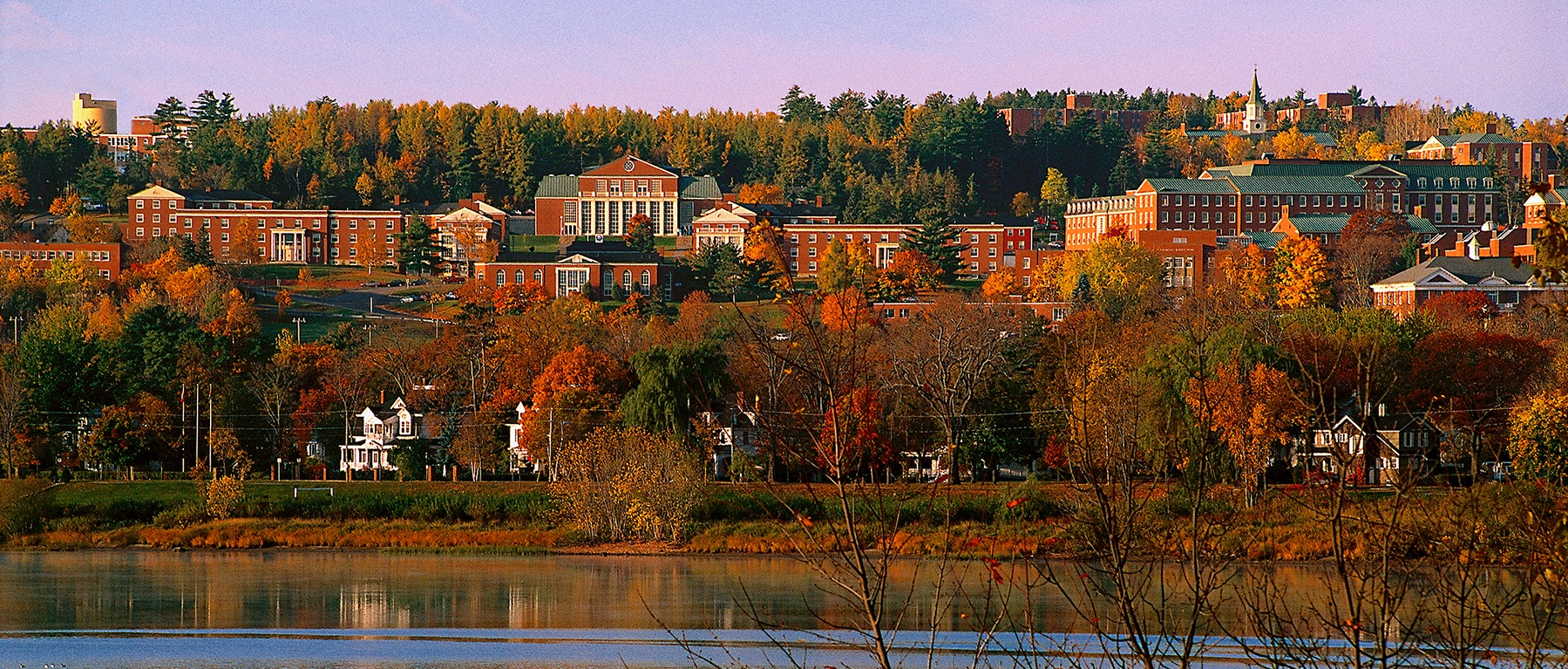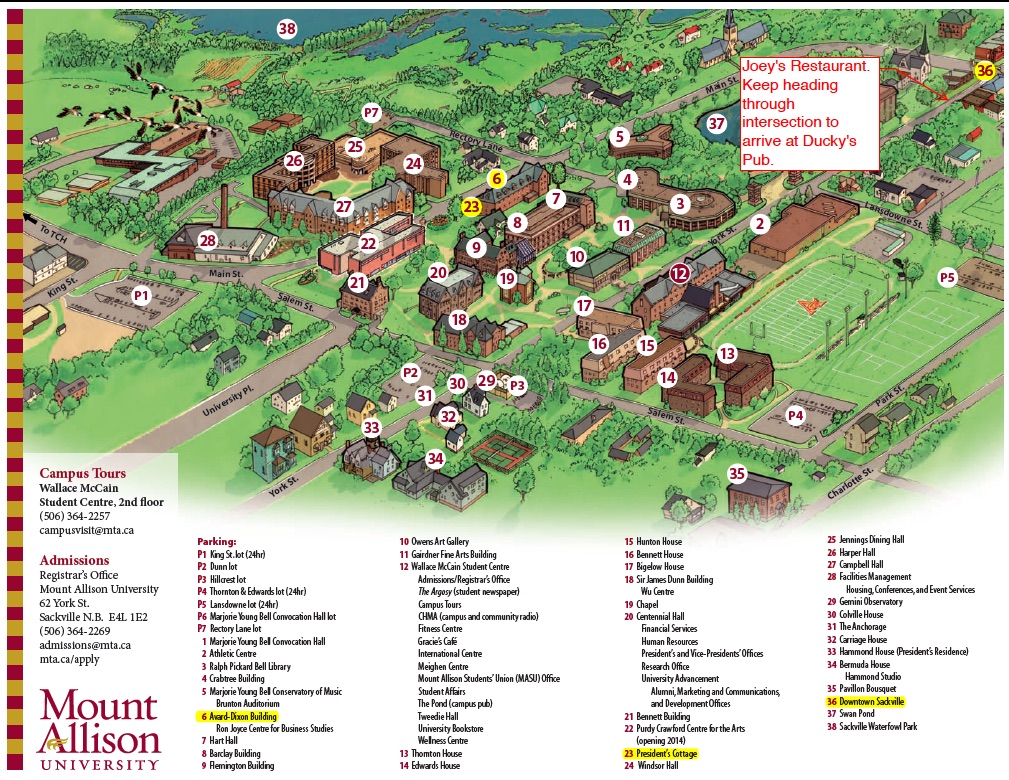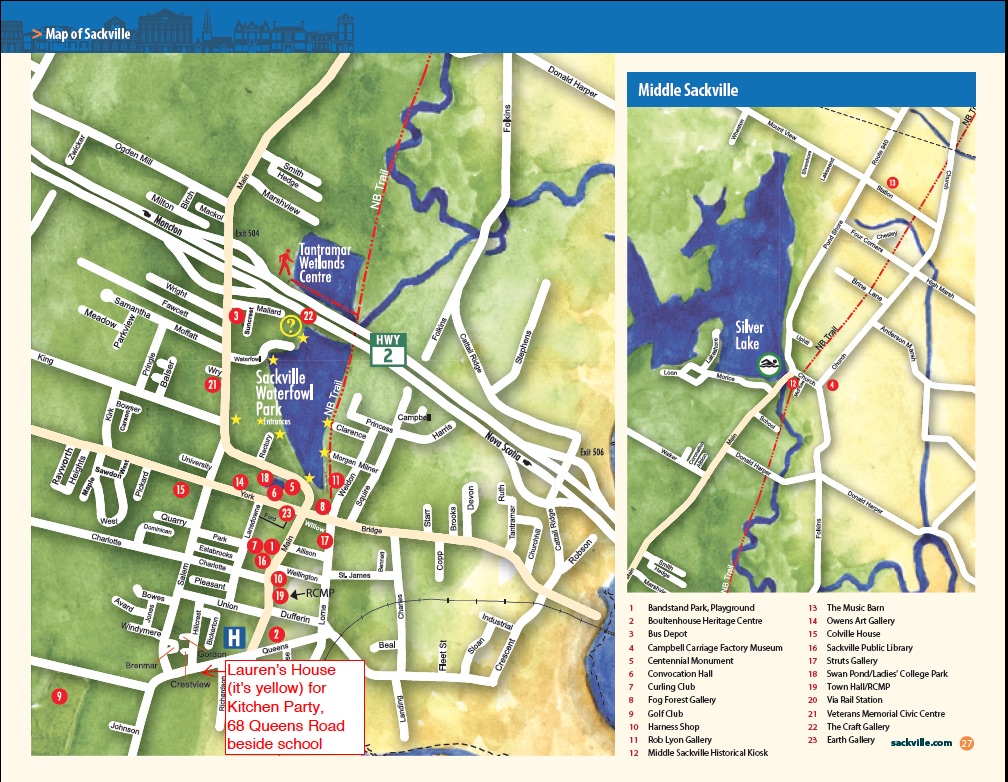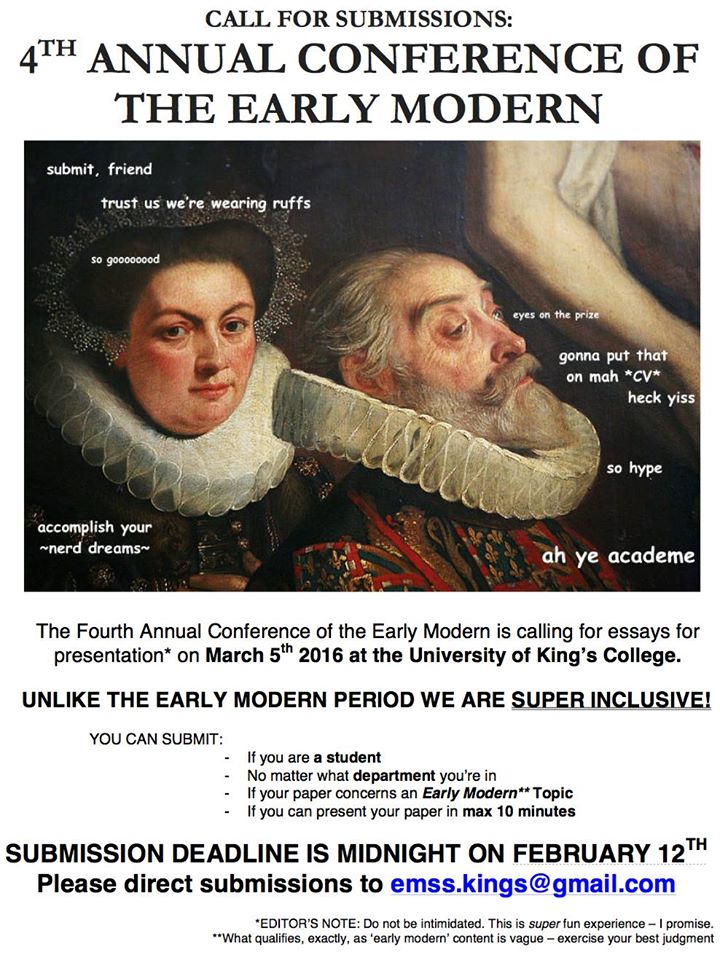October 13-14, 2017
University of New Brunswick, Fredericton
Friday, October 13
2:30-4:00pm: Registration – Tilley Hall 123 (Windsor Room)
UNB Map
Registration fee: 35$ (includes coffee breaks, lunch, and the Friday evening reception)
4:00-5:30pm Session #1: Disruptive and Destructive Behaviours (Tilley Hall 125)
Chair: Richard Raiswell, History, UPEI
Cheryl Fury, University of New Brunswick (Saint John)
“Wicked Actions Merit Fearful Judgments”: Capital Trials aboard the Early East India Company Voyages, 1601-1611
Cheryl Petreman, Technical University of Dresden
Drunk and Disorderly in Early Modern Nördlingen
Janet Mullin, University of New Brunswick (Fredericton) and St. Thomas University
“Very drunk & fit for nothing”: The language of drunkenness in eighteenth-century England
5:30-7:00pm: Reception at the Provincial Archives of New Brunswick (PANB), 23 Dineen Drive
7:00-8:00pm: Keynote address (PANB)
Chair: Richard Raiswell, History, UPEI
Randall Martin (Department of English, University of New Brunswick)
“Environmental History, Shakespeare, and Ecological Modernity”
8:00pm onwards: Pizza and drinks at the “Grad House” (Alden Nowlan House), 676 Windsor Street
Saturday, October 14
8:30-10:00am: Session #2: European and Indigenous Knowledge (Tilley Hall 125)
Chair: Edith Snook, UNBF
Robin Vose, St. Thomas University
De iurisdiccione inquisitorum contra infideles: the evolution of a concept
Lauren Beck, Mount Allison University
Indigenous Adaptations of European Cartographical Practices in the Early Modern Period in the Spanish Americas
Rachel Bryant, Dalhousie University
Rejected Kinship: The Pocahontas Myth in Settler Ontologies
10:00-10:15am: Coffee Break (Tilley Hall 28)
10:15-11:45am: Concurrent Sessions #3 and #4
Session #3: Using, Revising, and Clarifying the Past (Tilley Hall 124)
Chair: Elizabeth Mancke, Canada Research Chair, History, UNBF
Mark MacDonald, University of Prince Edward Island and University of Saskatchewan
Enlightenment Replicant: Sir James Macdonald, Hybridity, and Eighteenth-Century Time-Space Compression
Adam Nadeau, University of New Brunswick (Fredericton)
“The lucrative vices of men of trade”: Commerce, Rhetoric, and History in Thomas Hobbes’s Behemoth
Neil Robertson, University of King’s College
Descartes and Augustine: An Attempt at Clarifying the Relation
Session #4: Kinship, Bonds, and Gender (Tilley Hall 125)
Chair: Karen Pearlston, Law, UNBF
Lyndan Warner, St. Mary’s University
Kinship Riddles
Danielle Taylor, Carleton University
Blood, Bonds, and Brothers: Fraternal Triads in Lydgate and Malory
Tim Stretton, St. Mary’s University
“Married Women at Law in 17th Century England”
11:45am-1:00pm: Lunch (Tilley Hall 28)
1:00-2:30pm: Concurrent Sessions #5 and #6
Session # 5: Disputes in Evidence, Art, and Language (Tilley Hall 125)
Chair: Gary Waite, History, UNBF
Richard Raiswell, University of Prince Edward Island
Authenticating Demon Possession in the Age of the New Empiricism
Jannette Vusich, University of King’s College
“Qui si conviene usare un poco d’arte”: Renaissance illustrations of Cantos X-XI in Dante’s Purgatorio
Jeremy Hayhoe, Université de Moncton
Experience and experimentation in agronomic discourse in eighteenth-century France
Session #6: The Fashioning of Religious and Professional Identities (Tilley Hall 124)
Chair: Stephanie Kennedy, History, UNBF
Laura Verner, King’s College, London
Innovation in the Sacramental Life of Catholics in Elizabethan England
Bonnie Huskins, University of New Brunswick (Fredericton) and St. Thomas University
“Such is the very important office of an engineer”: William Booth, professional self-fashioning, and British military engineers in the 18th century
Wendy Churchill, University of New Brunswick (Fredericton)
“I lost my Health and indeed My Senses”: Military rights, masculinity, and professional identity in William Booth’s 1782 Gibraltar experience
2:30-2:45pm: Coffee Break (Tilley Hall 28)
2:45-4:15pm: Session #7: The Acquisition, Production, and Exchange of Knowledge (Tilley Hall 125)
Chair: J. Marc MacDonald, History, UPEI
Kathryn Morris, University of King’s College
Margaret Cavendish on Self-Knowledge
Siobhan Carlson, University of New Brunswick (Fredericton)
The Madness in the Howl: Madd Dogg Bites and Woman’s Medical Writing
Edith Snook, University of New Brunswick (Fredericton)
Rum Jellies and Ginger Wine: Maritime Recipes in the Early Modern Atlantic World
4:30-6:00pm: Session #8: Cultures of Emotion and Power Dynamics (Tilley Hall 125)
Chair: Janet Mullin, History, UNBF
Gary Waite, University of New Brunswick (Fredericton)
Feeling the Spirit(s) in the Dutch Radical Reformation: From Ecstatic Perception to Rational Doubt, 1536-1690
Stephanie Pettigrew, University of New Brunswick (Fredericton)
The Transatlantic Power of 17th-century French Women
Keith Grant, Crandall University
“I think I feel new Desires”: Unfeeling Enthusiasts in the Culture of Sensibility
6:00-6:30pm: Closing Remarks and Business Meeting (Tilley Hall 125)
6:30pm onwards: downtown pub for food and drinks

Photo credit: Tashwayn via Flickr. Creative Commons License.






